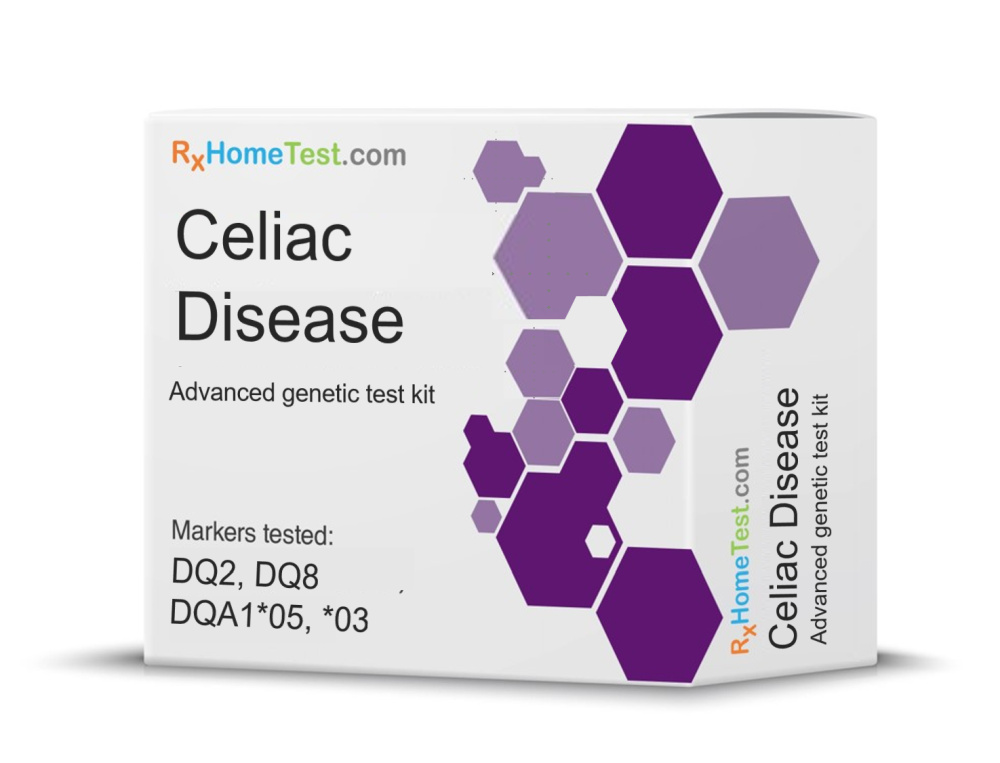
There are two main kinds of celiac tests: genetic and antibody. If you need help choosing between the two, read about their differences here.
Are you worried you may have celiac disease and want to test to confirm or deny your hunch? When it comes to celiac tests, you have two options: genetic tests and antibody tests. If you're not sure which to choose, review the differences between these two tests below.
Genetic tests look for HLA-DQ2 and HLA-DQ8 genes, genetic markers that are part of the immune system and stick to gluten proteins. Most people with celiac disease have one or both of these genetic markers. If your test comes back negative for both genes, your risk of having celiac is extremely low. If your test comes back positive for one or both genes, it's not a guarantee you have celiac. It does, however, mean you're at risk. People with one copy of HLA-DQ2 or HLA-DQ8 have a 3 percent risk of having celiac, while those with two copies bear a 10 percent risk.
When someone with celiac eats gluten, their body produces antibodies to fight off the protein, which it views as a threat. Antibody tests check for gluten-sensitive IgA and IgG antibodies in the blood. If your test comes back positive for these antibodies, there's an extremely high chance you have celiac disease.
Genetic vs. antibody tests: which should you choose? Both tests are quick, accurate ways to test for gluten intolerance.
When testing for celiac disease, start by choosing either a genetic test or an antibody test. If you're currently on a gluten-free diet, your body won’t produce IgA and IgG antibodies, so a genetic test will be more accurate. If you're not on a gluten-free diet, either test will work—it's your choice.
If you take a genetic test and your results come back negative for both HLA-DQ2 and HLA-DQ8 genes, it's very unlikely that you have celiac disease. If your results come back positive, you'll want to take an antibody test to confirm the results.
If you start with an antibody test and your results come back positive, you almost certainly have celiac disease. If results come back negative, you'll want to take a genetic test to rule out a celiac diagnosis.
When used together, these tests can detect celiac disease with impressive accuracy.
If you want to test for gluten intolerance at home, RxHomeTest makes doing so easy. With our at-home celiac genetic test, you can collect samples from the comfort of your couch, ship your test kit off, and receive accurate, physician-reviewed results in less than a week. Get your test kit today to take control of your health!

Celiac – FAQs - key facts about gluten intolerance.
Common Celiac Disease Symptoms in Children and Teens - a short summary of symptoms.
What is Celiac? History, Present and Genetic Risk - a detailed look at celiac.
How to Read a Celiac Genetic Test Report? - makes it simple, easy to understand your results.
Sensitivity to Food – Allergy, Intolerance, and Celiac Disease - a comprehensive review.
Food Allergies vs Food Sensitivities: What’s the Difference? - a few simple steps to differentiate.
Food Allergies in Children - a short summary.